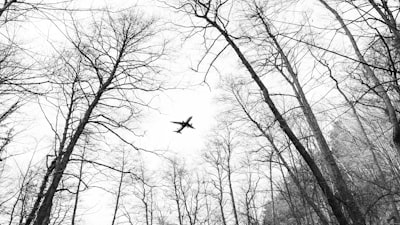Echoes in the Siren: What Air-Raid Guidance Reveals About Our Age
Imagine, for a moment, the sound of a siren in the night—a sound at once ancient and modern, primal and technical, piercing not just the air but the psyche of a people. What does it mean to live under the shadow of that wail? How does a nation prepare its citizens to respond—not merely in body, but in mind and spirit?
This reflection is inspired by a recent headline: Taiwan to issue new air-raid guidance, learning from Ukraine and Israel—a headline that, beneath its bureaucratic tone, pulses with centuries of tension, adaptation, and hope.
The Siren as Symbol: Fear, Readiness, and Memory
Early warning sirens are more than mechanical alerts; they are cultural touchstones. The instructions they trigger, from duck-and-cover drills to smartphone alerts, reflect a society’s collective anxieties and aspirations. Taiwan’s forthcoming guidance does not simply address new military realities; it gestures toward broader questions:
- Who gets to feel safe?
- How do societies metabolize fear?
- Where does hope find its footing amid uncertainty?
Consider this: In World War II London, air-raid sirens marked not only impending destruction but also unity—a city “digging for victory” together in bunkers and tube stations. In Israel, sirens have become woven into daily life, drawing communities together as much as warning them apart. In Ukraine, digital technologies and Telegram groups supplement or supplant the wail, painting a modern face on an ancient threat.
Yet, as much as guidance seeks to save lives, it also shapes national identity: resilience, yes—but also vulnerability, the price of being part of a world where security is never absolute.
Lessons Across Borders: The Anatomy of Preparedness
Why do nations look outward for models in their moment of peril? To learn from others is to admit both humility and interconnectedness. Taiwan’s gesture—studying Ukraine’s digital updates and Israel’s layered protocols—is a form of “borrowed time,” a willingness to absorb not just tactics but trauma and tenacity.
| Country | Air-Raid Guidance Innovations | Societal Impact |
|---|---|---|
| Ukraine | Push alerts, crowdsourced reporting | Tech-driven, decentralized |
| Israel | Color-coded zones, safe-room culture | Collective vigilance, resilience |
| United Kingdom | Civil defense bunkers, mass drills | Communal solidarity |
| Taiwan | Hybrid approaches, adapting lessons | Ongoing, evolving |
Yet imitation has its limits. Each society’s readiness reflects not just geography, but history, politics, and psychology. When Taiwanese officials adapt Israeli or Ukrainian templates, they must also confront the unique contours of island life, political ambiguity, and the shadow of a rising neighbor.
Readiness in the Age of Information and Ambiguity
In the modern era, war is as much about information as artillery. False alarms, deepfakes, psychological operations—these are as potent as bombs. As Taiwan crafts its guidance, the greatest challenge may not be instructing citizens where to hide, but how to recognize truth in a rising tide of manipulated reality.
“Preparedness is not simply having a plan. It’s about a people learning to trust—both the alarm and each other.”
Cybersecurity experts warn that “infodemic” can erode public trust even as it spreads life-saving alerts. Sociologists suggest that excessive drills foster numbness; psychologists that readiness, when too incessant, tips into despair. The paradox: to teach vigilance without surrendering to dread.
Reflections Beyond the Headlines
Why examine air-raid guidance at all? Because, stripped to essentials, these protocols reveal (and shape) our deepest social contracts. They ask us: Who do we take responsibility for? What are we prepared to lose—or save? What is the price of preparedness—and of imagination—in our shared futures?
The next time you hear a siren, in memory or in the news, ask not only what threat it signals, but what society it calls into being. As Taiwan learns from distant wars, so, perhaps, do we all—learning that our vigilance, too, is always incomplete, always evolving, and always, somehow, reaching for hope in the dark.
“To be ready is never to be truly safe. But it is to choose, moment by moment, a form of courage.”
This article was inspired by the headline: 'Taiwan to issue new air-raid guidance, learning from Ukraine and Israel'.

Comments
No comments yet. Be the first to comment!